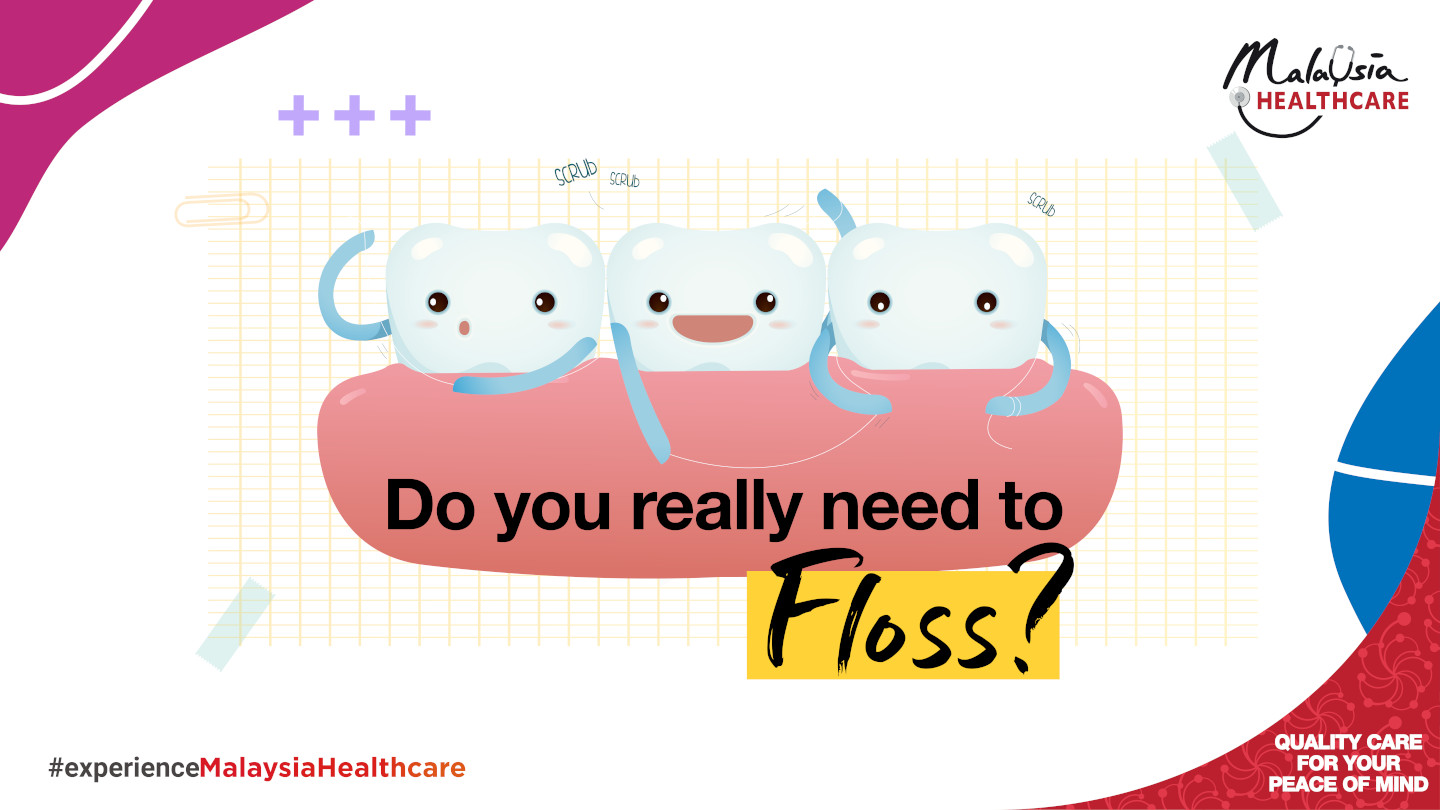Malaysia Healthcare Chronicles
Do You Really Need to Floss?


Despite the lack of support from long-term, large-scale studies proving the effectiveness of flossing, smaller, short-term studies suggest that it plays a crucial role in cleaning spaces between your teeth that your toothbrush cannot reach.
Think of flossing as a deep cleaning for your teeth after brushing. It helps dislodge and remove food particles and plaque trapped between your teeth, complementing the action of your toothbrush, which primarily removes these particles from the surfaces of your teeth.
Considering its low cost and minimal risk, flossing serves as a valuable preventative measure against plaque buildup, promoting good gum health and overall oral hygiene.
Therefore, dentists recommend incorporating flossing into your daily oral hygiene routine, preferably before brushing your teeth.
If you remain unsure about the efficacy of flossing, below are some of its benefits:
1. Prevents Plaque Buildup:
Plaque consists of leftover food particles and saliva containing bacteria that release acids, posing a threat to tooth enamel. Flossing helps prevent plaque accumulation, which, if left untreated, can harden into tartar, and increase the risk of gum disease.
2. Prevents Gum Disease:
Bleeding gums may indicate early-stage gingivitis, characterized by inflammation around the gum line. Maintaining healthy gums through regular flossing reduces the risk of gum disease, safeguarding against tooth loss in adulthood.
3. Prevents Cavities:
Flossing reaches areas where bacteria thrive, reducing the likelihood of cavity formation between teeth.
4. Reduces Bad Breath:
Flossing contributes to fresher breath and improved oral odor by removing food particles and bacteria trapped between teeth.
In summary, while the debate surrounding the necessity of flossing continues, its benefits in preventing plaque, gum disease, cavities, and bad breath make it a worthwhile addition to your oral care routine.



